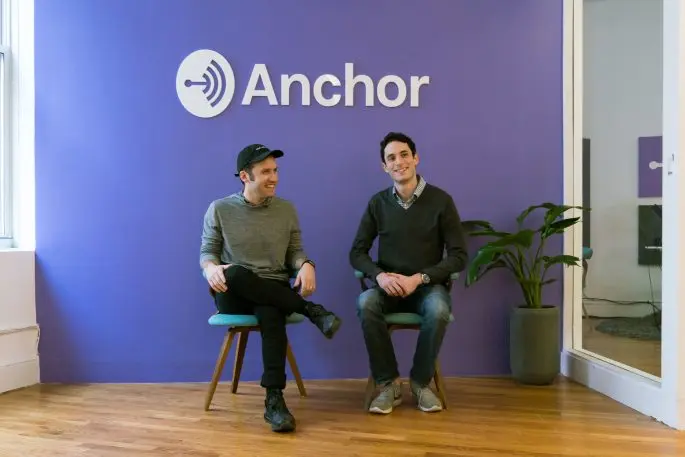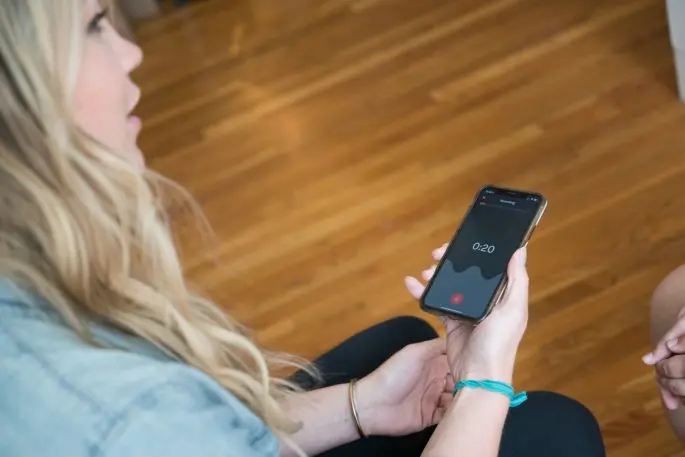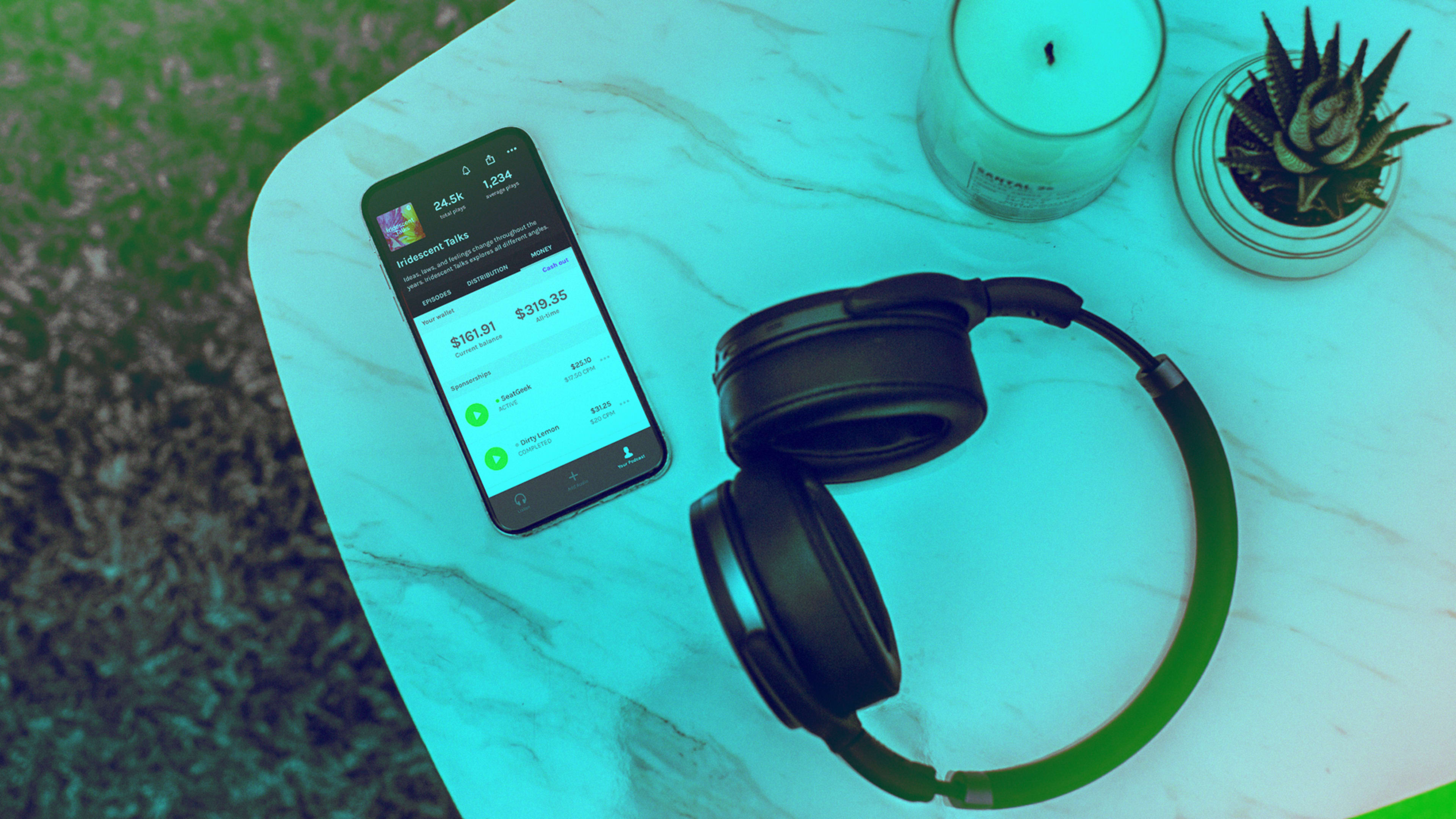“With more than 200 million users around the globe, Spotify is already one of the world’s most-used apps, but we see an opportunity apart from where we sit today. An opportunity that will allow us to reach beyond music to engage users in entirely new ways,” wrote Daniel Ek, Spotify’s CEO and cofounder, back in February. “To really understand, take the current value of the video industry. Consumers spend roughly the same amount of time on video as they do on audio. Video is about a trillion dollar market. And the music and radio industry is worth around a hundred billion dollars. I always come back to the same question: Are our eyes really worth 10 times more than our ears?”
Ek went on to announce his intent to redefine Spotify from being about music to focusing on audio, and he announced two acquisitions: Gimlet Media and Anchor. Gimlet, which has been a media darling since it launched with a podcast about its own startup story, received the bulk of the attention as reporters sought to nail down its $230 million acquisition price. As the creator of such podcasts as Homecoming and Reply All as well as StartUp, Gimlet represents Spotify’s desire for building a more robust catalog of exclusive originals with a proven hitmaker. Doubling down on that idea, Spotify also bought the scripted storytelling platform Parcast in March.
But if Spotify is going to achieve Ek’s mission to make our ears as valuable as our eyes, the acquisition to watch is the one that’s received the least attention: Anchor.
Since officially launching in 2016, Anchor has become the number-one podcast platform in the world. The company’s mission to “democratize audio” has led it to powering more than 15% of all podcasts on the market, according to podcast analytics company Chartable. Anchor has also tripled the number of podcasts that make money through advertising since it launched Anchor Sponsorships last year. So it’s little wonder how Anchor caught Spotify’s eye.
Apple still dominates the podcast marketplace, but for Ek “to become the world’s leading audio platform,” Spotify needs scale. And how better to scale than with a company that’s often referred to as the YouTube of podcasts?
Although that’s certainly possible, the question that lingers is: Can Anchor be the democracy it wants to be for creators under Spotify’s dominion?
It started with a podcast
About four years ago, Anchor cofounders Michael Mignano and Nir Zicherman were working at the photo-editing platform Aviary when they decided to try and start a podcast together. However, their plans came to an abrupt halt when they realized just fragmented and opaque the process was.
“It was researching and figuring out what the best microphone is, figuring out how to edit audio, which neither of us had ever done before,” says Mignano, Anchor’s CEO. “We had to navigate all these paid services, like hosting your audio files and then submitting RSS feeds everywhere. It just felt really, really confusing.”
Mignano and Zicherman, Anchor’s CTO, bonded over the frustration and thought that if they were struggling, other amateur podcasters were as well. So they created Anchor, a platform where creators can record, edit, and upload their content in a more streamlined process.
Initially, podcasts created on Anchor could only be heard on Anchor. But Mignano and Zicherman quickly realized they were boxing in their users.

“So a little over a year ago,” Mignano adds, “we released a whole new version of Anchor that was basically the first end-to-end podcasting platform out there. And that’s when the floodgates really started to open.”
Anchor’s success in attracting so many amateur podcast creators is what led Spotify to be interested in buying them (for north of $100 million). “Acquiring Anchor was a strategic decision for us because Anchor has completely reimagined the path to audio creation, enabling a wide distribution of podcasts to a global audience,” says Sten Garmark, Spotify’s VP of product. “We believe that Spotify and Anchor can enable a new generation of creators to create, find an audience, and monetize.”
What Spotify can do for Anchor
Or better yet, as Mignano recalls, “Daniel Ek said it best to us in that they want it to give Anchor superpowers to enable us to move faster, to do bigger things with the resources and the backing of the world’s most forward-thinking audio company.”
Spotify wants to amplify Anchor’s mission of enabling anyone and everyone to make a podcast. On the music side, Spotify is beholden to the whims of labels and their licensing fees and doling out billions in royalties. Podcasts are an opportunity for Spotify to claim content outright with exclusive originals (enter Gimlet and Parcast) and to become an aggregator through Anchor.
“Increasing advertising revenue for the entire industry requires a centralized player that can leverage a large user base,” wrote independent tech and media analyst Ben Thompson in a blog post after the deal was announced. That said, because the majority of creators spread their podcasts among multiple outlets—including Spotify, Apple, Stitcher, and Google Play—directly monetizing non-exclusive content is tricky, unless creators can take advantage of something like Spotify’s Advertising platform.
“Spotify is still a distant second to Apple in podcasts, but they are growing fast,” Thompson wrote. “Just as importantly, Spotify already has a strongly growing advertising business […] that it can extend to podcasts. Anchor provides a way to capture new podcasters, leading them either to Spotify advertising or, in the case of rising stars, to Spotify exclusives.”
When it comes to podcast advertising, companies like Midroll have become the industry standard. However, it largely caters to podcasts with bigger audiences.

To curb that friction, Anchor launched its flagship monetization platform Anchor Sponsorships that matches creators with a brand and delivers host reads and payouts all through the app or site, with Anchor taking a 30% cut. Anchor also has Listener Support, a feature where listeners can donate between $0.99 to $10 to a creator, a tipping-style function that is the basis of podcast monetization in China.
“The real focus there is enabling long-tail creators who don’t have big audiences–their audiences are probably hyper-engaged and interested in maybe in really a niche topic. But you’re not going to get big brands to pay you big dollars for that show,” Zicherman says.
“We believe that we can help more creators of all sizes earn more money while enabling more advertisers to reach their audiences in more authentic and effective ways,” Garmark says. “Anchor Sponsorships is the first step on this journey.”
In conjunction with getting more money to creators, Anchor is also focused on providing more data to creators, long their number-one complaint of Apple’s dominance of the space thus far.
“I’d say now, post-acquisition, one of the things we’ve been really focused on is analytics,” Mignano says. “Now that we’re part of this much bigger platform, there’s more data we can tap into, there’s more technology and infrastructure we can leverage to power what we’re doing.”
“If there could be better transparency in podcasting overall, I think you would start to see new types of dollars flow into the ecosystem and grow the market,” he continues. “You hear these figures around podcasting’s that it’s a $350 million market in the U.S. right now. If you’re able to show value beyond what is currently possible through RSS and the current analytics, you would probably start to seeing new types of dollars.”
Most podcasts rely on direct response dollars, i.e., ad reads that ask listeners to use a special code related to the podcast for discounts on products or services. By and large, it’s been the predominant way for a brand to know if they’re getting a return on their investment. “If you were able to give more insight to brands and sponsors as to whether or not people are listening or how they’re listening or where they’re listening,” Mignano suggests, “you would probably start to see the spend in the space skyrocket.”
As of now, there’s no word as to how exactly Spotify will factor into Anchor Sponsorships. Could Spotify could take a cut in addition to or as part of Anchor’s 30%? Will Spotify turbocharge Anchor’s existing Rolodex of brands with its own? Will podcasts run ads in Spotify’s ad-supported tier?
Nor is there any roadmap as to how Anchor will tap into Spotify’s analytics. But it stands to reason that all of the above will overlap in some capacity, which raises the larger question of how much of a democracy can Anchor be for creators when it’s clearly chosen a side in the podcast arms race.
Anchor prides itself on being the podcast platform for the people, and both Mignano and Zicherman are adamant in saying that being part of Spotify will only amplify their mission. But as the podcast landscape welcomes new players to the space like the “Netflix of podcasts” Luminary or even with the possibility of Apple or Google snatching up a platform similar to Anchor, being backed by a company like Spotify could lend stability in an increasingly balkanized industry but at the same time chip away at a core value like democratizing audio.
Spotify has very publicly stated that they want to go from the world’s leading music platform to the world’s leading audio platform. In that sense, what’s good for creators is good for podcasting, and good for Spotify. “Everyone would unanimously agree that distribution to all platforms is absolutely critical to what creators need right now,” Mignano says. “Spotify knows that. We know that. And if we were to change that, I don’t think we’d have a business.”
Recognize your company's culture of innovation by applying to this year's Best Workplaces for Innovators Awards before the extended deadline, April 12.
